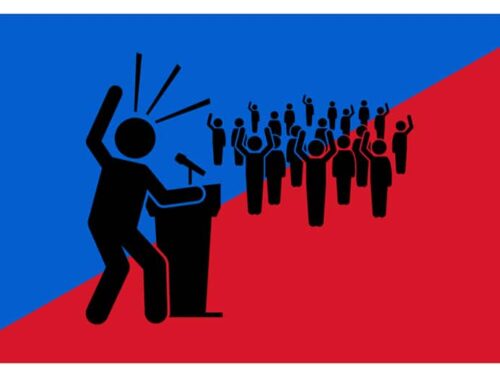
2020 has been an interesting year, to say the least. If you or your organization have had the luxury of staying neutral on matters of social justice in the past that is certainly no longer the case.
When it comes to matters of humanity, society wants to know: Where do you stand? And who do you stand with and for?
Many organizations and high profile individuals are grappling with how to express themselves without wrecking themselves, so to speak. For so long the wise choice was not to weigh in on contentious topics and rather pretend that business operated in a vacuum. We’re not here to talk about race, we’re here to talk about X! And so, for many of us, there is no established game plan for how to proceed.
But the reality is that people, our culture, society, and business are all tightly intertwined, and so we find ourselves trying say what we mean without saying what we didn’t mean. You know what I mean?
Undoubtedly, more than ever before, the public sphere feels like a minefield no matter how good our intentions may be. Some find their genuine sentiments harder to express without coming off as disingenuous or non-committal. Others are wary of setting the right tone, fearing a backlash no matter what they say or how they say it.
And, many organizations are grappling with their own problematic histories. How do we draw the line between ally and performer? What about the difference between well-intentioned and tone-deaf? These are all important questions and difficult lines to walk, and yet the marketplace of public opinion is asking our organizations to take the time to establish and make statements on where we stand. As a result, difficult conversations are going to present themselves, and things from the past will make an appearance. Oh, and by the way, as leaders it is important for us to acknowledge that at some point in our careers we – and/or organizations – will most likely screw it up. And at that point an apology – a “full” apology – is going to have to be made.
Here at The Center for Respectful Leadership, we support our partner organizations as they make important steps towards admitting past discretions, supporting their employees, and prioritizing marginalized portions of their customer base. It is not simply enough for intentions to be implied, but in fact it’s vital that they be stated clearly allowing for plenty of space for others to make their own voices heard.
But how do you do all of this without committing brand slaughter or shooting yourself in the foot, or inciting cancel culture or a boycott or at the least, reams of social media comments? Some guidance can be found in what we refer to as the core practices of Respectful Leadership, called the Seven RespectfulDos.
These RespectfulDo’s form a positive feedback loop of behavioral habits that when practiced sincerely and consistently, allow the leader to give and receive Respect in return. And, when it comes to you current and past mistakes, it’s no coincidence that we at CRL hold that in order to be perceived as a Respectful Leader by others you must be able to admit when your actions have been perceived by those same people as disrespectful.
Here’s the process for RespectfulDo #7: Offer A Full Apology for Disrespect
- Admit exactly what you did wrong (so they know you know you did something they perceived to be disrespectful)
- Identify exactly how it hurt others (so they know you know how you hurt them)
- Make ZERO excuses (excuses will blow the apology and make things worse.)
- Apologize clearly by saying “we made a mistake,” and/or “we blew It.” Avoid weasel words like “If,” or “we failed to meet the mark,” or “we didn’t live up to our values and standards.” You screwed up, own it clearly and unequivocally.
- Explain how you will make up for this mistake. Identify the concrete steps are you taking.
- Be as humble as possible. For example: “we ask for no forgiveness for the mistake we’ve made, nor do we ask for acceptance of our apology, we simply ask that you watch us make this right.”
- Get to work walking your talk. Right your wrong and do better in the future.
Of course, this is easier to digest in bullet point form than to execute. As successful organizations and human beings, it is our nature to deflect or downplay our mistakes, or perhaps use a refried script for what we think we’re supposed to say in the moment. A genuine, full apology followed by an impactful change in action is a much more difficult and timely row to hoe.
But the good news is, we see this difficult work taking place. Take for example, Marie Forleo, who found herself in the wrong after she and her team removed posts made by members of her B-Schoolers Facebook group on topics surrounding race, privilege, and victims of police brutality. The outcry was sharp and swift, and the impact of those actions were quickly put into perspective for Marie and her team. The fallout from this occurrence lead to much self-examination, and update in policies and trainings for employees, and a lengthy full apology made by Marie herself on behalf of her organization and their previous policies. This apology hit the mark:
“I made the mistake of silencing the voices of the Black B-Schoolers in my FB group that needed to be heard during this time of deep pain…”
“Instead of creating a safe space for them to express their hurt and pain, I chose to temporarily close commenting without attempting to understand their point of view.”
“While we had guidelines in place about the type of posts and comments that are acceptable, our core values are rooted in kindness, compassion, and respect and I didn’t uphold those ideals.”
“I take full and complete responsibility for my mistake. I was 100% wrong.”
“The Actions We’re Taking Now. We will…”
“Dear White People, Do Not Defend Me”
“My focus right now is on my B-Schoolers Facebook group and Team. We’ve begun the healing process, and it’s a long road ahead. There’s a lot of important work to be done…”
I’m sure we can agree that this certainly was not an easy admission to make, especially on a platform so deeply personal for Marie. But her apology was embraced by many of her members after she laid her cards on the table and committed to a better and different future.
If you’re not sure you can unpack such weighted topics on your own consider a coach, consultant, or advisor to hold you and your organization accountable and help educate throughout the process.
We at CRL are committed to being a support and resource to you on this.
One thing is for sure, the era of sweeping past and current wrongs under the rug is over, and we all have some serious work to do.
Encouraging all of you to think and #EmbraceRespect,




